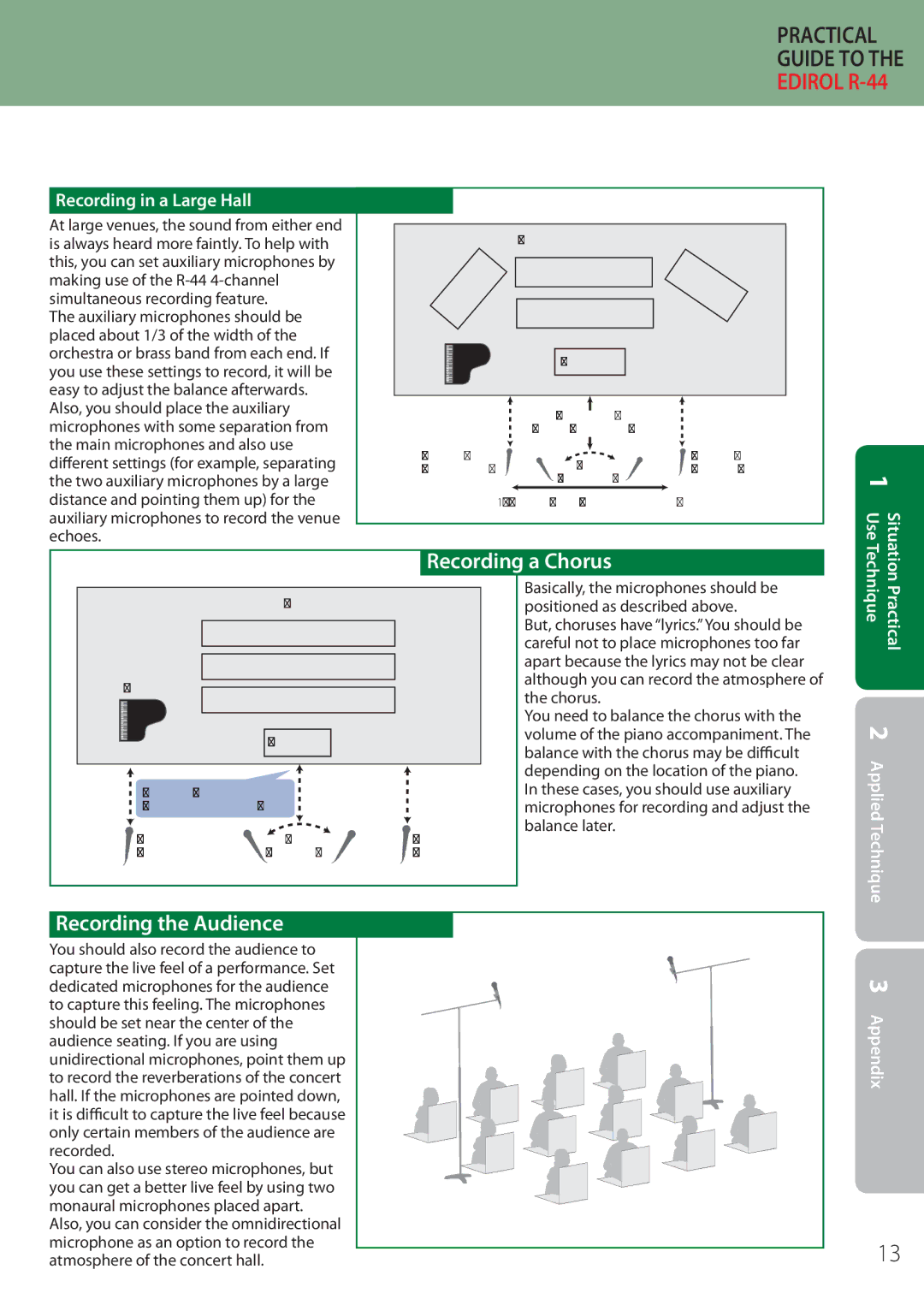
PRACTICAL GUIDE TO THE EDIROL
Recording in a Large Hall
At large venues, the sound from either end is always heard more faintly. To help with this, you can set auxiliary microphones by making use of the
The auxiliary microphones should be placed about 1/3 of the width of the orchestra or brass band from each end. If you use these settings to record, it will be easy to adjust the balance afterwards. Also, you should place the auxiliary microphones with some separation from the main microphones and also use different settings (for example, separating the two auxiliary microphones by a large distance and pointing them up) for the auxiliary microphones to record the venue echoes.
| Choir |
Piano |
|
| Conductor |
If distance is too far, lyrics | |
will be hard to understand | |
Auxiliary | Main |
Microphones | Microphones |
Recording the Audience
You should also record the audience to capture the live feel of a performance. Set dedicated microphones for the audience to capture this feeling. The microphones should be set near the center of the audience seating. If you are using unidirectional microphones, point them up to record the reverberations of the concert hall. If the microphones are pointed down, it is difficult to capture the live feel because only certain members of the audience are recorded.
You can also use stereo microphones, but you can get a better live feel by using two monaural microphones placed apart.
Also, you can consider the omnidirectional microphone as an option to record the atmosphere of the concert hall.
Orchestra or Brass Band |
Conductor |
|
|
| Determined |
|
| |
|
|
| by the size of the hall |
|
| |
Auxiliary |
|
| Main | Auxiliary | ||
Microphones |
|
| Microphones | |||
|
| Microphones |
| |||
|
|
|
| |||
| 1/3 of the Orchestra or Brass Band |
| ||||
Recording a Chorus
Basically, the microphones should be positioned as described above.
But, choruses have “lyrics.”You should be careful not to place microphones too far apart because the lyrics may not be clear although you can record the atmosphere of the chorus.
You need to balance the chorus with the volume of the piano accompaniment. The balance with the chorus may be difficult depending on the location of the piano. In these cases, you should use auxiliary microphones for recording and adjust the balance later.
Auxiliary
Microphones
Situation Practical 1 Use Technique2 Applied Technique 3 Appendix
13
